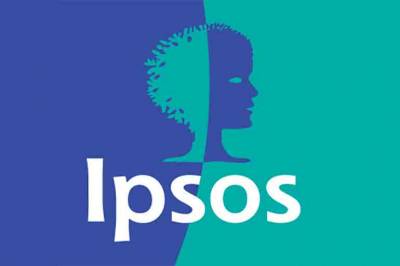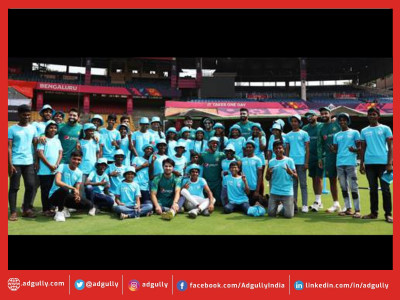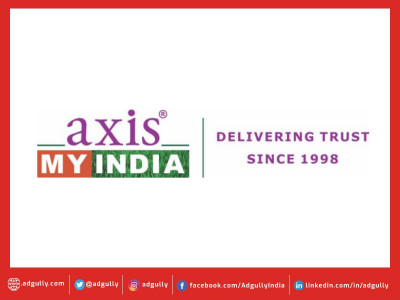74% Indians agree that achieving Gender Equality is personally important to them
8th March is International Women’s Day. Keeping in view the theme of #BalanceforBetter, which calls for a gender balanced world, Ipsos, a global market research company, conducted a global survey to understand Indians’ attitude towards gender equality with recognition of actions needed for achieving equal rights for men and women.
Interestingly, with all things considered in our society, 38% Indians agree that there are more advantages being a man against 24% who feel there are more advantages in being a woman. However, 66% Indians say that young women today are better off than the previous generation, though 18% feel their life is same as their parents and 11% are pessimistic and believe that they are worse off. Most optimistic were Chile (75%) and Colombia (69%), while Japan (27%) and France (33%) were found to be least optimistic saying they are same or worse off than their parents. The optimism extends for Indian men with 63% Indians agreeing that men of today have better life vis-à-vis the previous generation.
Gender Equality and perceptions
6 in 10 Indians (59%) hold the view that India has done enough to forge equality among men and women in providing women with equal rights as men.
Further, 74% Indians (higher than 65% globally) agree that achieving Gender Equality is personally important to them (women versus men who held the view, were 76% and 74%). Countries espousing gender equality most were found to be the Latin American countries of Peru (80%) and Columbia (78%); Japan (36%) and Russia (45%) emerged at the bottom of the heap.
Some other interesting insights that emerged in the survey: half of Indians polled (50%) say that they are feminists; while over 5 in 10 Indians affirm that the man who stays at home to take care of his children is no less of a man (though 39% said the contrary and India was 2nd highest in denouncing stay at home for men after South Korea, where 76% felt that the man taking care of children at home was less of a man). There are still some perceptions that need to be addressed towards ensuring a balanced world, as 35% of Indians polled said they are uncomfortable with a woman boss (highest across all markets), though 58% disagreed.
69% Indians believe that women alone cannot achieve equality and that it will require actions by men in their support. Though 60 per cent Indians realize that there is a much greater expectation from men to support women’s equality in India.
Roadmap for gender equality
Top 3 actions named by Indians for achieving Gender Equality were: Educating boys and girls about the importance of gender equality in schools (37%), tougher laws to end violence and harassment against women (29%) and Equal Pay – employers paying women the same as men for the same work (21%). Other actions listed included men shouldering responsibilities at home, men standing up for injustice against women, removing barriers that stop women from occupying senior positions, employers promoting women to senior positions, media portraying women in a positive way, better access to education for women, among others.
“The top actions listed focus on the need to address some of the deep-rooted causes that are barriers to a ensuring a balanced world. Educating young minds to understand gender equality and preventing all forms of violence will help in bringing about much needed shift in attitudes. This shift in attitude is also a pre-requisite for a society that does not tolerate violence of any form against women. It is also no surprise to see several actions identified calling for equal opportunities and addressing barriers at work places. Recognizing what needs to be done is the first step to taking these actions leading to optimism,” says Tripti Sharma, Research Director, Public Affairs, Ipsos India.
Achieving Equality – taking stock!
We asked Indians to assess how they viewed efforts in different spheres for achieving equal rights for men and women. We found that that there was a level of dissatisfaction with the efforts being put in for equal rights. Dissatisfaction with efforts was most in looking after children and home (43%), followed by government and politics (38%), sports (37%), business (35%), media (31%), science and technology (30%) and education (29%).
When is discrimination likely to mitigate and end? Majority of Indians polled felt that discrimination against women would end in the next 20 years. 68% said in education, 66% in sports, 57% in govt. and politics, 64% felt in media, 62% felt discrimination in business would end in 20 years, 68% feel discrimination in science and technology would end in 20 years and 59% said for looking after home and children.
Our study also looked at identifying key issues facing women. Top three issues faced by Indian women were – sexual harassment, sexual violence and domestic abuse!
Notably, Sexual Harassment emerged at the top, chosen by 39% Indians; the rest being, sexual violence (35%), Domestic Abuse (19%), sexualization of women and girls in media (18%), physical violence (15%), workplace discrimination (14%), lack of financial/ economic independence (13%), abuse on social media (12%), balancing work and caring responsibilities (11%), gender stereotyping (10%), lack of women in leadership roles in business and public life (9%), equal pay (9%), access to employment (8%), the amount of unpaid work women have to do - cooking, cleaning, childcare (6%) and support for pregnant mothers and new mothers (5%).
About the Survey
- Field dates were Friday, December 21st 2018 to Friday, January 4th 2019
- 16 of the 27 countries surveyed online generate nationally representative samples in their countries (Argentina, Australia, Belgium, Canada, France, Germany, Great Britain, Hungary, Italy, Japan, Netherlands, Poland, South Korea, Spain, Sweden, and United States).
- Brazil, Chile, Colombia, India, Malaysia, Mexico, Peru, Russia, Serbia, South Africa and Turkey produce a national sample that is more urban & educated, and with higher incomes than their fellow citizens. We refer to these respondents as “Upper Deck Consumer Citizens”. They are not nationally representative of their country.
- Approximately 1000+ individuals participated on a country by country basis via the Ipsos Online Panel with the exception of Argentina, Belgium, Chile, Colombia, Hungary, India, Malaysia, Mexico, Netherlands, Peru, Poland, Russia, Serbia, South Africa, South Korea, Sweden and Turkey, where each have a sample approximately 500+.


















Share
Facebook
YouTube
Tweet
Twitter
LinkedIn